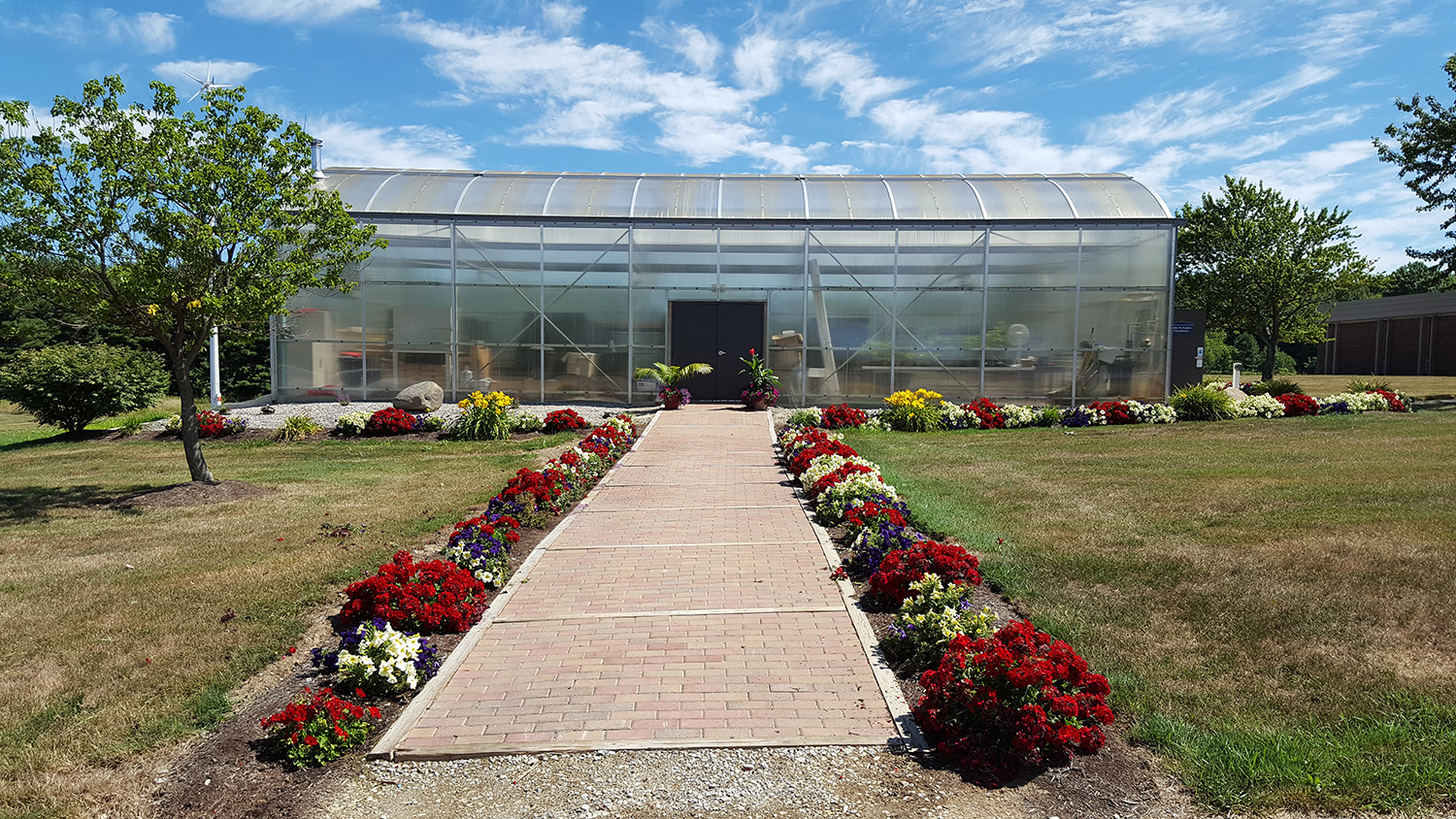At this point every winter, cabin fever has set in and most of us are daydreaming about springtime. As land steward for Geauga Park District (GPD) in Chardon, Joel Firem is especially eager to get his hands back into the springtime soil to plant tree and wildflower seedlings. Thanks to an ongoing collaboration with ∫⁄¡œ≥‘πœÕ¯ Geauga and the Regional Academic Center, Firem doesn‚Äôt have to wait until May to start the planting season. Every March, he nurtures seeds at the ∫⁄¡œ≥‘πœÕ¯ Geauga greenhouse in Burton so the seedlings are ready to plant outdoors two to three months later.

Through this partnership, ‚Äú∫⁄¡œ≥‘πœÕ¯ Geauga has ultimately allowed GPD to provide a better quality park for its visitors and higher quality habitat for wildlife,‚Äù Firem says.
Working in the Planning and Natural Resource Department, Firem is responsible for natural resource management implementation throughout the Geauga Park District, which encompasses 10,000+ acres of land. His main focus is on habitat management, invasive plant control, wildlife management, and ecological restoration.
Each year, the park district grows hundreds of pots and plugs for various planting projects. The types of plants that will be grown at ∫⁄¡œ≥‘πœÕ¯ Geauga‚Äôs greenhouse are a variety of native tree species and wildflower meadow species. Once grown, they will be planted at various parks in restoration projects or newly created habitats. All seed grown in these projects are sourced from Geauga Park District properties and have been collected by park volunteers, community organizations and park staff.
Many of the trees grown this spring will be planted at parks where reforestation efforts are taking place, such as Orchard Hills Park in Chesterland. Northern Red Oak, Shagbark Hickory, Paw Paw and White Oak seedlings will mature to provide habitat and food sources for a variety of wildlife. Reforested areas also will help to reduce soil erosion, thus improving water quality in their respective watersheds.
Meanwhile, a fresh influx of wildflowers will be planted in several of GPD’s existing 180 acres of native meadow. Grey-Headed Coneflower, Whorled Rosinweed, Great Blue Lobelia, and Blazing Star will augment certain areas of meadow that haven’t yet reached their full potential, Firem explains. Along with the delight to the senses they bring, these meadows provide a food source for many pollinators like bees and butterflies during the growing season. Additionally, meadows provide nesting habitat for birds as well as a food (seed) source in the fall and winter. Firem says that these native species provide a much better habitat compared to typical fallow fields dominated by non-native, invasive plants.
This collaboration between ∫⁄¡œ≥‘πœÕ¯ Geauga and the Geauga Park District has been ongoing for five years and expectations are that the relationship will deepen and grow as time goes on. In fact, Firem says, ‚ÄúWe would be glad to assist ∫⁄¡œ≥‘πœÕ¯ Geauga with any future needs such as resource management recommendations on their property.‚Äù
None of this would have been possible without the generous donation of the campus greenhouse from a local family back in September 2000. John W. Gander provided a fully functional greenhouse in support of ∫⁄¡œ≥‘πœÕ¯ Geauga‚Äôs certificate programs in Greenhouse Production and in Floriculture, courtesy of BFG Supply in Burton, Ohio.
“Mr. Gander had a lifetime love of farming and the outdoors,” commented his son-in-law, Don Hornak. “He would surely appreciate the current partnership between KSU and the Geauga Park District.”
These seeds of collaboration planted within the community grow into beautiful blossoms of benefits that spread far and wide, just like the colorful meadow flowers park visitors enjoy every spring.

